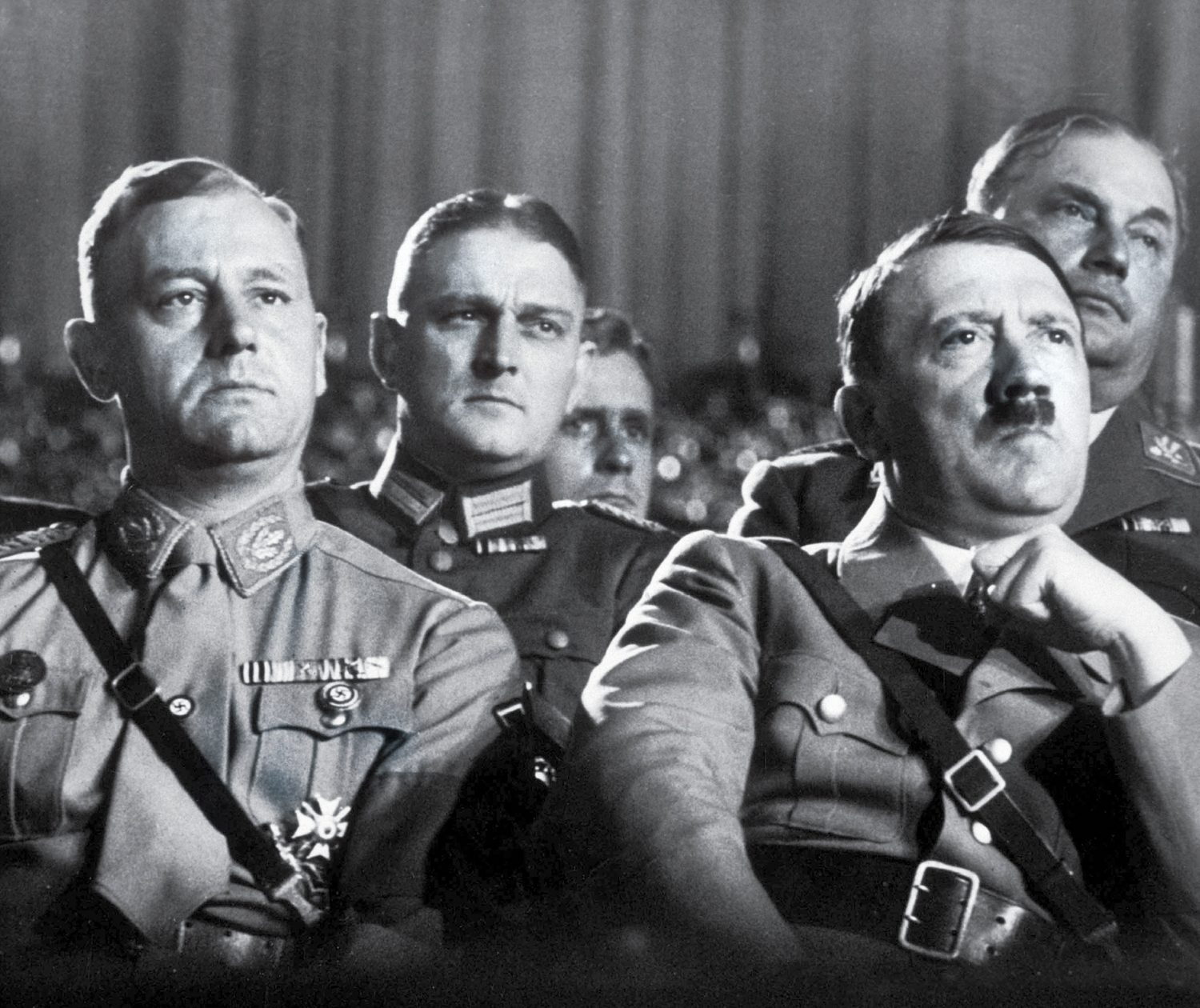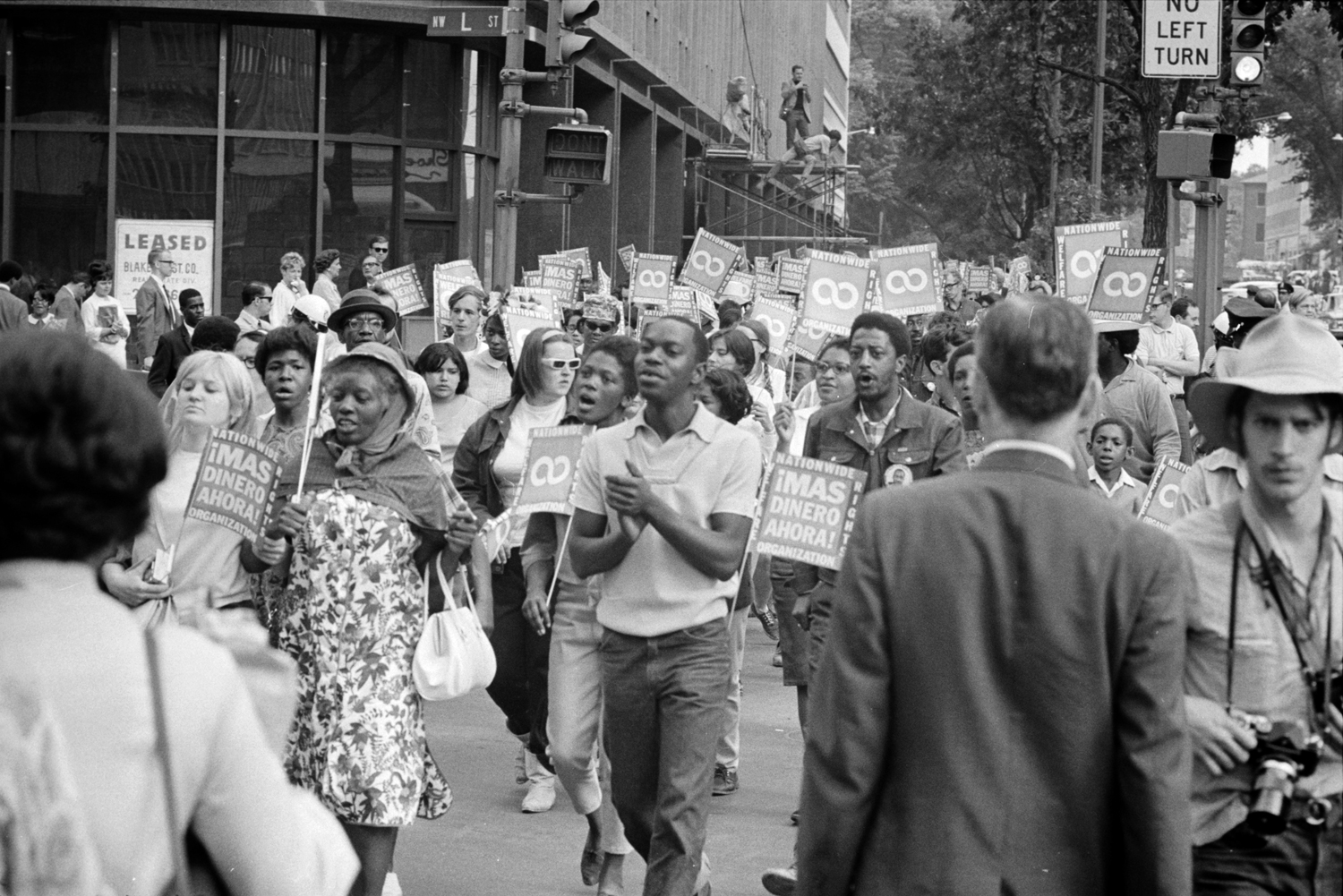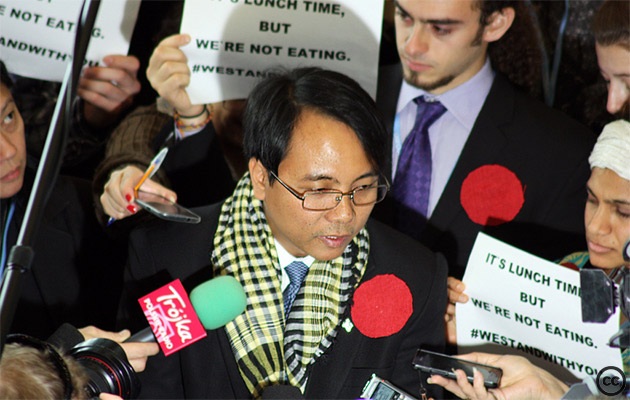
Power Down Power Down
The humanitarian impulse has not vanished from US foreign policy. It has simply split into two camps.
Nov 19, 2013 / Books & the Arts / Thomas Meaney
Sea Urchins Sea Urchins
The sea urchins star the sea floor like sunken mines from a rust-smirched war filmed in black and white. Or if they are stars they are negatives of light, their blind beams brittle purple needles with no eyes: not even spittle and a squint will thread the sea’s indigo ribbons. We float overhead like angels, or whales, with our soft underbellies just beyond their pales, their dirks and rankles. Nothing is bare as bare feet, naked as ankles. They whisker their risks in the fine print of footnotes’ irksome asterisks. Their extraneous complaints are lodged with dark dots, subcutaneous ellipses… seizers seldom extract even with olive oil, tweezers. Sun-bleached, they unclench their sharps, doom scalps their hackles, unbuttons their stench. Their shells are embossed and beautiful calculus, studded turbans, tossed among drummed pebbles and plastic flotsam—so smooth, so fragile, baubles like mermaid doubloons, these rose-, mauve-, pistachio- tinted macaroons.
Nov 19, 2013 / Books & the Arts / A.E. Stallings

Shelf Life Shelf Life
Ben Urwand’s The Collaboration: Hollywood’s Pact with Hitler.
Nov 19, 2013 / Books & the Arts / Akiva Gottlieb

Just Deserts Just Deserts
Being poor in the United States has rarely meant anything so simple as having too little money.
Nov 19, 2013 / Books & the Arts / Jennifer Szalai

Here Comes Everybody Here Comes Everybody
Women writers are far outnumbered by men in magazines and book reviews, but why? Part of the answer lies in book publishing.
Nov 19, 2013 / Books & the Arts / Miriam Markowitz
To the Next Centuries To the Next Centuries
Is there autumn there, is there leaf smoke, is the air blued and mapled, oaked and appled and wined, is that tang, that ache for who knows? gone from your sweaters and hair? Are there trees even, do they break out in uncontrollable cold fires, do they shatter in long, unreal downstreamings, is October the same without them, is our sadness so river-and-wind swift, and so free, is it still our sharpest seeing, if we have not learned from them how to be taken apart, how to be blown away? Are clouds the same, are they still our clouds if leaves have never seethed against them on a tempestuous night, are they wild, is the moon the same if it has never wildly sailed through wild clouds, is there a Hunter’s Moon, a Blood Moon tinged with the rust and incandescence of the leaves, is there a moon at all, a hanging stone, a white astonishment, the exile’s breath on a pane? There is sun, I am sure—has it grown more dangerous, has its shine through thin ozone whited out your eyes, does it drive dunes through your forests, has it warmed the seas to exactly body temperature? What is it like to have won and won and won, no mile without its grid of roads, no block unwired, no handswidth without wireless, when every breeze has been rebreathed each current steered, each cliff a mirror? Is there no wild desire, no wild with all regret because no animals are wild, because the hills are leveled and the valleys raised because there is no clear and endless sky? And what has endangered my imagination that imagines you pale and bodiless and scanned, not a shadow left in your floodlit brain, your sleep hard in coming, dreams shallow and bright? Why do I see you in a white room floating among machines and drips and feeds as if you were my dead, who went before me on white boats launched into the future, as if you were me, when I am tired, as I am tired now, tired of the expertise that says there is nothing new, no thoughts or feelings not already words, no words I have not said again and again, thinking how long this trip has been, so near its end that I will never again put down new roots, change jobs, raise children, fall in love. I can lighten my suitcase now, discarding my ticket, since there is no return, the map of the city I’ll never get back to, the little blue phrase book for the language I’ll never speak again, the sweater, the half-read novel, the comb, the end of this thought.... I know you will never hear the squeak of a mail box, church bells (already quaint here), a van graveling around a turn, a CD (surely gone). I won’t ask (couldn’t endure to know) are there birds there still building the dawn. I know you can’t hear the wind I’m hearing though there will be winds, the song that’s blowing me away, though there will be song after song. And you can’t hear this, though you, like me, will lose what seems like everything and go on, cry against your weariness with leaves and moon and wind, or whatever passes then for moon and leaves and wind, cry out against death and the dead world, the dead world, and the death in you, until, like me, you can stand again unborn, unused, unknown.
Nov 19, 2013 / Books & the Arts / James Richardson

#WeStandWithYou: Young Activists Fast for the Climate #WeStandWithYou: Young Activists Fast for the Climate
At the UN climate conference in Warsaw, a youth-led fast in solidarity with the Philippines is spreading around the world.
Nov 19, 2013 / Wen Stephenson
Exchange: Trials and Designs Exchange: Trials and Designs
On May 13, The Nation published Michael Sorkin’s appallingly inaccurate “The Trials of Rafi Segal,” which presented a dramatic tale of betrayal. However, the article has the facts backwards and the truth upside down and violated fundamental standards of journalism. Sorkin’s journalistic travesty recounted the tale of Rafi Segal, an Israeli architect, who was selected to be the “preferred architect” to design the Israel National Library, only to have the winning title and potential contract snatched away. According to Sorkin, Segal was betrayed by the competition sponsor, an Israeli foundation funded by the Rothschilds. Sorkin also blamed me personally for raising questions about the ownership of rights to the winning design. Sorkin called Segal’s disqualification the “narrowest (and phoniest) legalism” and claimed that Segal was “forced to go to the courts to counter the manifest injustice he has suffered.” A dramatic tale, as related by Sorkin, but not the truth. In reality, Segal violated the rules of the competition to obtain an unfair advantage, lied about it, was eventually found out and was disqualified as a result. Segal’s disqualification was the result of his own misdeeds and deceit. Segal’s meritless lawsuit, in which he sought to be reinstated as the designer of the National Library of Israel, was a complete failure. In September, facing the certainty of final dismissal of his claim by the court, Segal entirely abandoned his case. Moreover, overruling Segal’s objections, the Jerusalem District Court awarded to HyperBina the sum of 30,000 Israeli new shekels in attorneys’ fees and costs, an unusually large fee award in Israel for a pre-trial resolution, and the second award of attorneys’ fees made by the court against Segal and in favor of HyperBina. In addition to his failed lawsuit, during the process, Segal spread falsehoods in public. Segal’s behavior was described in a public statement by the competition organizer, the Israeli National Library Construction Company (with board directors from the Israeli National Library and Yad Hanadiv): “All the detailed facts [about the disqualification] have been made known to Segal and we regret his attempts to slant and distort the truth by spreading fabrications and claims that have no basis in reality.” The competition organizer also stated, “The decision [to disqualify Segal] was taken separately by both the board of the National Library Construction Company and the board of the [Israeli] National Library—unanimously in both instances.” Segal exemplifies a classic case of manipulation by someone who is dealing with two parties that do not have direct contact with each other. Segal lacked (or did not want to spend) the resources needed to compete in the Israel National Library competition, so he approached HyperBina Design Group to contribute essential design work. However, the competition rules allowed only Israeli-registered architects to participate in the first round of the competition. So, in his dealing with HyperBina in Cambridge, Segal concealed the portion of the competition rules that stated the nationality requirement. He promised, in writing, that HyperBina, which did the majority of design work, would be an “equal partner” in the competition. In dealings with the competition authorities in Jerusalem, Segal concealed HyperBina’s contributions and falsely claimed to be the sole creator and sole owner of rights to the project. When the competition authorities investigated, the chain of project e-mails and the detailed project documents showed what actually had happened. In the end, the competition authorities disqualified Segal because, as they told the Israeli court, Segal “blatantly violated the rules of the competition and had been deceitful.” Why did Sorkin get this story so completely backwards? In part, the answer is that Segal is his personal friend, and the two share political views. However, the fundamental reason for Sorkin’s distortion is that he was unwilling to spend the effort and time in proper investigation, expected from responsible journalists, to seek the truth. When Sorkin contacted HyperBina, I, as its owner, offered to make available to Sorkin the full Israeli court record (which was in Hebrew). Sorkin e-mailed back: “No need to worry about those Hebrew language documents… Greek to me!” So he did not bother to review the evidence filed by the competition authorities. Sorkin did not ask to examine the project records that display every step in the project design process; nor did he interview all those at my firm who witnessed how the project was produced. Instead Sorkin blindly repeated distortions supplied by Segal to the court. Sorkin failed to inform his readers that Segal’s legal case was a failure from the start. The Israeli court rejected Segal’s first request for a temporary injunction barring the selection of another project architect. Then, on the evening before the date of the full hearing on such request this past January, Segal abruptly withdrew his petition for the injunction, clearly because the requested injunction was going to be denied. The court then granted HyperBina its costs and attorneys’ fees relating to this motion for the first time in the legal case. All this occurred before Sorkin wrote his article, but Sorkin did not mention these facts at all. Fundamentally, Sorkin pretended to be informed, while in fact he was not. Amazingly, Sorkin’s 2,900-word article about the alleged “injustice” done to Segal does not mention once that Segal’s violation of competition rules and deceit were the official grounds for Segal’s disqualification. Moreover, Sorkin’s article is full of Segal’s falsehoods defaming HyperBina, me and the competition authorities, as well as inaccurate allegations by another of Segal’s friends, Preston Scott Cohen, all of which Sorkin irresponsibly portrays as facts. Sorkin’s article reveals a careless and irresponsible disregard of facts, a lack of professional integrity, lack of concern for those he attacked and a failure to meet basic standards of professional journalism. The Nation and Michael Sorkin should apologize to those who were attacked so unfairly in this article. Bing Wang cambridge, mass. Sorkin Replies In preparing my essay, I accumulated and reviewed hundreds of pages of documents, including the affidavits filed by Bing Wang and Rafi Segal. I corresponded with the competition sponsors, members of the jury, Segal, Wang and other interested parties. I took careful note of the extensive coverage in the Israeli media, much of which was in English and some of which was in Hebrew and translated for me. I stand by my conclusions, which are not unique to me. My main point is that Segal’s design was, for a combination of reasons, including Wang’s claims of authorship, unfairly quashed. I remain persuaded that in all legitimate artistic and creative dimensions, the design of the library was Segal’s. Wang’s letter does nothing to dissuade me. When I contacted Wang asking for an interview, she refused on the advice of her counsel. She also declined, again on the advice of her counsel, to send me unspecified materials she claimed would significantly clarify the facts and asked that I delay the article to await them. The quotations and assertions in Wang’s letter do not reflect legal conclusions of the court but are expressions by the party—“the competition organizer”—that disqualified Segal in the first place, the subject of my criticism. Italicizing these comments does not increase their accuracy or disinterestedness. Preston Scott Cohen, whose “inaccurate allegations” are denounced by Wang, was the chair of the architecture department at Harvard and stands by his statements. Wang neglects to mention the other quoted source of my information about the authorship of the project: an Israeli architect who was employed by Wang at the time and was a main contributor to the project in her office (italics mine). That members of Wang’s firm assisted in the preparation of the design submission is not in dispute. It remains for Segal to comment on why he has declined to pursue further legal remedies in Israel (at least one other is pending), but the fact that the library has long since signed a contract with other architects, selected without benefit of a design competition, may have persuaded him of the futility of throwing good money after bad. Michael Sorkin new york city
Nov 19, 2013 / Bing Wang and Michael Sorkin
Puzzle No. 3304 Puzzle No. 3304
And don’t miss Kosman and Picciotto’s crossword blog, Word Salad.
Nov 19, 2013 / Joshua Kosman and Henri Picciotto
‘Unmanned’ Offers a Chance to Debate Drones ‘Unmanned’ Offers a Chance to Debate Drones
New doc offers a clear-cut case that drones are not making us safer, and the filmmakers are offering free copies of the documentary to any students who want to stage screenings on ...
Nov 19, 2013 / StudentNation / Timothy Molina and StudentNation
